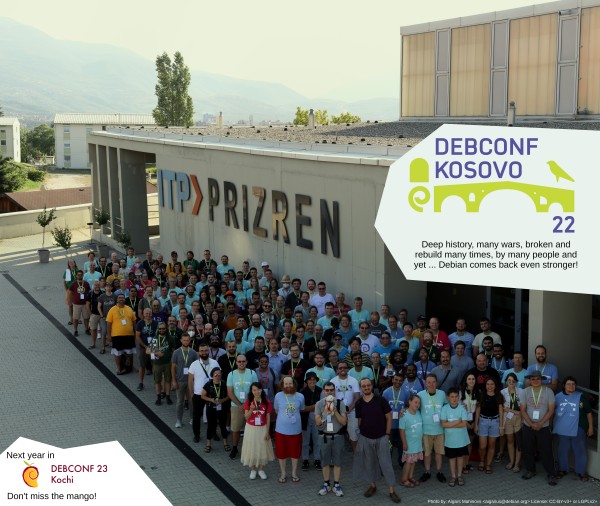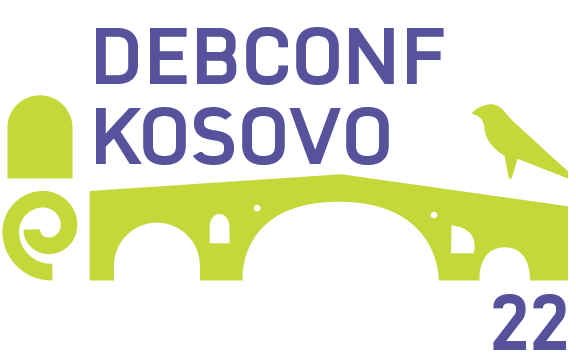Review:
Monstrous Regiment, by Terry Pratchett
| Series: |
Discworld #31 |
| Publisher: |
Harper |
| Copyright: |
October 2003 |
| Printing: |
August 2014 |
| ISBN: |
0-06-230741-X |
| Format: |
Mass market |
| Pages: |
457 |
Monstrous Regiment is the 31st Discworld novel, but it mostly
stands by itself. You arguably could start here, although you would miss
the significance of Vimes's presence and the references to
The Truth. The graphical reading order
guide puts it loosely after
The Truth and roughly in the Industrial
Revolution sequence, but the connections are rather faint.
There was always a war. Usually they were border disputes, the
national equivalent of complaining that the neighbor was letting their
hedge row grow too long. Sometimes they were bigger. Borogravia was
a peace-loving country in the middle of treacherous, devious, warlike
enemies. They had to be treacherous, devious, and warlike; otherwise,
we wouldn't be fighting them, eh? There was always a war.
Polly's brother, who wanted nothing more than to paint (something that the
god Nuggan and the ever-present Duchess certainly did not consider
appropriate for a strapping young man), was recruited to fight in the war
and never came back. Polly is worried about him and tired of waiting for
news. Exit Polly, innkeeper's daughter, and enter the young lad Oliver
Perks, who finds the army recruiters in a tavern the next town over. One
kiss of the Duchess's portrait later, and Polly is a private in the
Borogravian army.
I suspect this is some people's favorite Discworld novel. If so, I
understand why. It was not mine, for reasons that I'll get into, but
which are largely not Pratchett's fault and fall more into the category of
pet peeves.
Pratchett has dealt with both war and gender in the same book before.
Jingo is also about a war pushed by a
ruling class for stupid reasons, and featured a substantial subplot about
Nobby cross-dressing that turns into a deeper character re-evaluation. I
thought the war part of
Monstrous Regiment was weaker (this is part
of my complaint below), but gender gets a considerably deeper treatment.
Monstrous Regiment is partly about how arbitrary and nonsensical
gender roles are, and largely about how arbitrary and abusive social
structures can become weirdly enduring because they build up their own
internally reinforcing momentum. No one knows how to stop them, and a lot
of people find familiar misery less frightening than unknown change, so
the structure continues despite serving no defensible purpose.
Recently, there was a brief attempt in some circles to claim Pratchett
posthumously for the anti-transgender cause in the UK. Pratchett's
daughter was having none of it, and any Pratchett reader should have been
able to reject that out of hand, but
Monstrous Regiment is a
comprehensive refutation written by Pratchett himself some twenty years
earlier. Polly is herself is not transgender. She thinks of herself as a
woman throughout the book; she's just pretending to be a boy. But she
also rejects binary gender roles with the scathing dismissal of someone
who knows first-hand how superficial they are, and there is at least one
transgender character in this novel (although to say who would be a
spoiler). By the end of the book, you will have no doubt that Pratchett's
opinion about people imposing gender roles on others is the same as his
opinion about every other attempt to treat people as things.
That said, by 2023 standards the treatment of gender here seems... naive?
I think 2003 may sadly have been a more innocent time. We're now deep
into a vicious backlash against any attempt to question binary gender
assignment, but very little of that nastiness and malice is present here.
In one way, this is a feature; there's more than enough of that in real
life. However, it also makes the undermining of gender roles feel a bit
too easy. There are good in-story reasons for why it's relatively simple
for Polly to pass as a boy, but I still spent a lot of the book thinking
that passing as a private in the
army would be a lot harder and
riskier than this. Pratchett can't resist a lot of cross-dressing and
gender befuddlement jokes, all of which are kindly and wry but (at least
for me) hit a bit differently in 2023 than they would have in 2003. The
climax of the story is also a reference to a classic UK novel that to even
name would be to spoil one or both of the books, but which I thought
pulled the punch of the story and dissipated a lot of the built-up
emotional energy.
My larger complaints, though, are more idiosyncratic. This is a war novel
about the enlisted ranks, including the hazing rituals involved in joining
the military. There are
things I love about
military fiction, but apparently that reaction requires I have some
sympathy for the fight or the goals of the institution.
Monstrous
Regiment falls into the class of war stories where the war is pointless
and the system is abusive but the camaraderie in the ranks makes service
oddly worthwhile, if not entirely justifiable.
This is a real feeling that many veterans do have about military service,
and I don't mean to question it, but apparently reading about it makes me
grumbly. There's only so much of the apparently gruff sergeant with a
heart of gold that I can take before I start wondering why we glorify
hazing rituals as a type of tough love, or why the person with some
authority doesn't put a direct stop to nastiness instead of providing
moral support so subtle you could easily blink and miss it. Let alone the
more basic problems like
none of these people should have to be here
doing this, or
lots of people are being mangled and killed to make
possible this heart-warming friendship.
Like I said earlier, this is a me problem, not a Pratchett problem. He's
writing a perfectly reasonable story in a genre I just happen to dislike.
He's even undermining the genre in the process, just not quite fast enough
or thoroughly enough for my taste.
A related grumble is that
Monstrous Regiment is very invested in
the military trope of naive and somewhat incompetent officers who have to
be led by the nose by experienced sergeants into making the right
decision. I have never been in the military, but I work in an industry in
which it is common to treat management as useless incompetents at best and
actively malicious forces at worst. This is, to me, one of the most
persistently obnoxious attitudes in my profession, and apparently my
dislike of it carries over as a low tolerance for this very common
attitude towards military hierarchy.
A full expansion of this point would mostly be about the purpose of
management, division of labor, and people's persistent dismissal of skills
they don't personally have and may perceive as gendered, and while some of
that is tangentially related to this book, it's not closely-related enough
for me to bore you with it in a review. Maybe I'll write a stand-alone
blog post someday. Suffice it to say that Pratchett deployed a common
trope that most people would laugh at and read past without a second
thought, but that for my own reasons started getting under my skin by the
end of the novel.
All of that grumbling aside, I did like this book. It is a very solid
Discworld novel that does all the typical things a Discworld novel does:
likable protagonists you can root for, odd and fascinating side
characters, sharp and witty observations of human nature, and a mostly
enjoyable ending where most of the right things happen. Polly is great; I
was very happy to read a book from her perspective and would happily read
more. Vimes makes a few appearances being Vimes, and while I found his
approach in this book less satisfying than in
Jingo, I'll still
take it. And the examination of gender roles, even if a bit less fraught
than current politics, is solid Pratchett morality.
The best part of this book for me, by far, is Wazzer. I think that
subplot was the most Discworld part of this book: a deeply devout belief
in a pseudo-godlike figure that is part of the abusive social structure
that creates many of the problems of the book becomes something
considerably stranger and more wonderful. There is a type of belief that
is so powerful that it transforms the target of that belief, at least in
worlds like Discworld that have a lot of ambient magic. Not many people
have that type of belief, and having it is not a comfortable experience,
but it makes for a truly excellent story.
Monstrous Regiment is a solid Discworld novel. It was not one of
my favorites, but it probably will be someone else's favorite for a host
of good reasons. Good stuff; if you've read this far, you will enjoy it.
Followed by
A Hat Full of Sky in publication order, and
thematically (but very loosely) by
Going Postal.
Rating: 8 out of 10

 This post should have marked the beginning of my yearly roundups of the favourite books and movies I read and watched in 2023.
However, due to coming down with a nasty bout of flu recently and other sundry commitments, I wasn't able to undertake writing the necessary four or five blog posts In lieu of this, however, I will simply present my (unordered and unadorned) highlights for now. Do get in touch if this (or any of my previous posts) have spurred you into picking something up yourself
This post should have marked the beginning of my yearly roundups of the favourite books and movies I read and watched in 2023.
However, due to coming down with a nasty bout of flu recently and other sundry commitments, I wasn't able to undertake writing the necessary four or five blog posts In lieu of this, however, I will simply present my (unordered and unadorned) highlights for now. Do get in touch if this (or any of my previous posts) have spurred you into picking something up yourself












 A real sad state of affairs
A real sad state of affairs 


 Two weeks ago, I had the chance to go see Cory Doctorow at my local independent
bookstore, in Montr al. He was there to present his latest essay, co-written
with Rebecca Giblin
Two weeks ago, I had the chance to go see Cory Doctorow at my local independent
bookstore, in Montr al. He was there to present his latest essay, co-written
with Rebecca Giblin Although Doctorow is known for his strong political stances, I have to say I'm
quite surprised by the quality of the research Giblin and he did for this book.
They both show a pretty advanced understanding of the market dynamics they look
at, and even though most of the solutions they propose aren't new or
groundbreaking, they manage to be convincing and clear.
That is to say, you certainly don't need to be an economist to understand or
enjoy this book :)
As I have mentioned before, the book heavily criticises monopolies, but also
monopsonies a market structure that has only one buyer (instead of one
seller). I find this quite interesting, as whereas people are often familiar
with the concept of monopolies, monopsonies are frequently overlooked.
The classic example of a monopsony is a labor market with a single employer:
there is a multitude of workers trying to sell their labor power, but in the
end, working conditions are dictated by the sole employer, who gets to decide
who has a job and who hasn't. Mining towns are good real-world examples of
monopsonies.
In the book, the authors argue most of the contemporary work produced by
creative workers (especially musicians and writers) is sold to monopsonies and
Although Doctorow is known for his strong political stances, I have to say I'm
quite surprised by the quality of the research Giblin and he did for this book.
They both show a pretty advanced understanding of the market dynamics they look
at, and even though most of the solutions they propose aren't new or
groundbreaking, they manage to be convincing and clear.
That is to say, you certainly don't need to be an economist to understand or
enjoy this book :)
As I have mentioned before, the book heavily criticises monopolies, but also
monopsonies a market structure that has only one buyer (instead of one
seller). I find this quite interesting, as whereas people are often familiar
with the concept of monopolies, monopsonies are frequently overlooked.
The classic example of a monopsony is a labor market with a single employer:
there is a multitude of workers trying to sell their labor power, but in the
end, working conditions are dictated by the sole employer, who gets to decide
who has a job and who hasn't. Mining towns are good real-world examples of
monopsonies.
In the book, the authors argue most of the contemporary work produced by
creative workers (especially musicians and writers) is sold to monopsonies and





